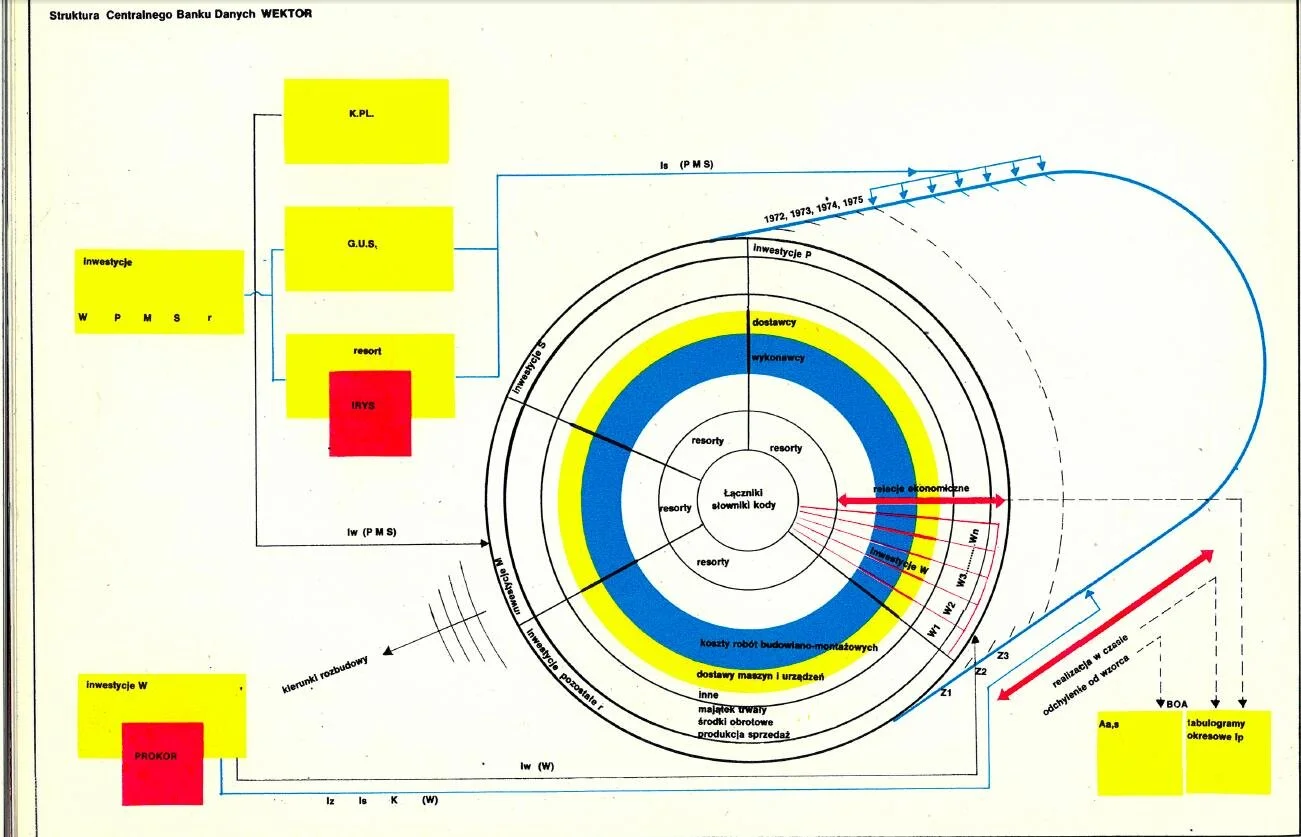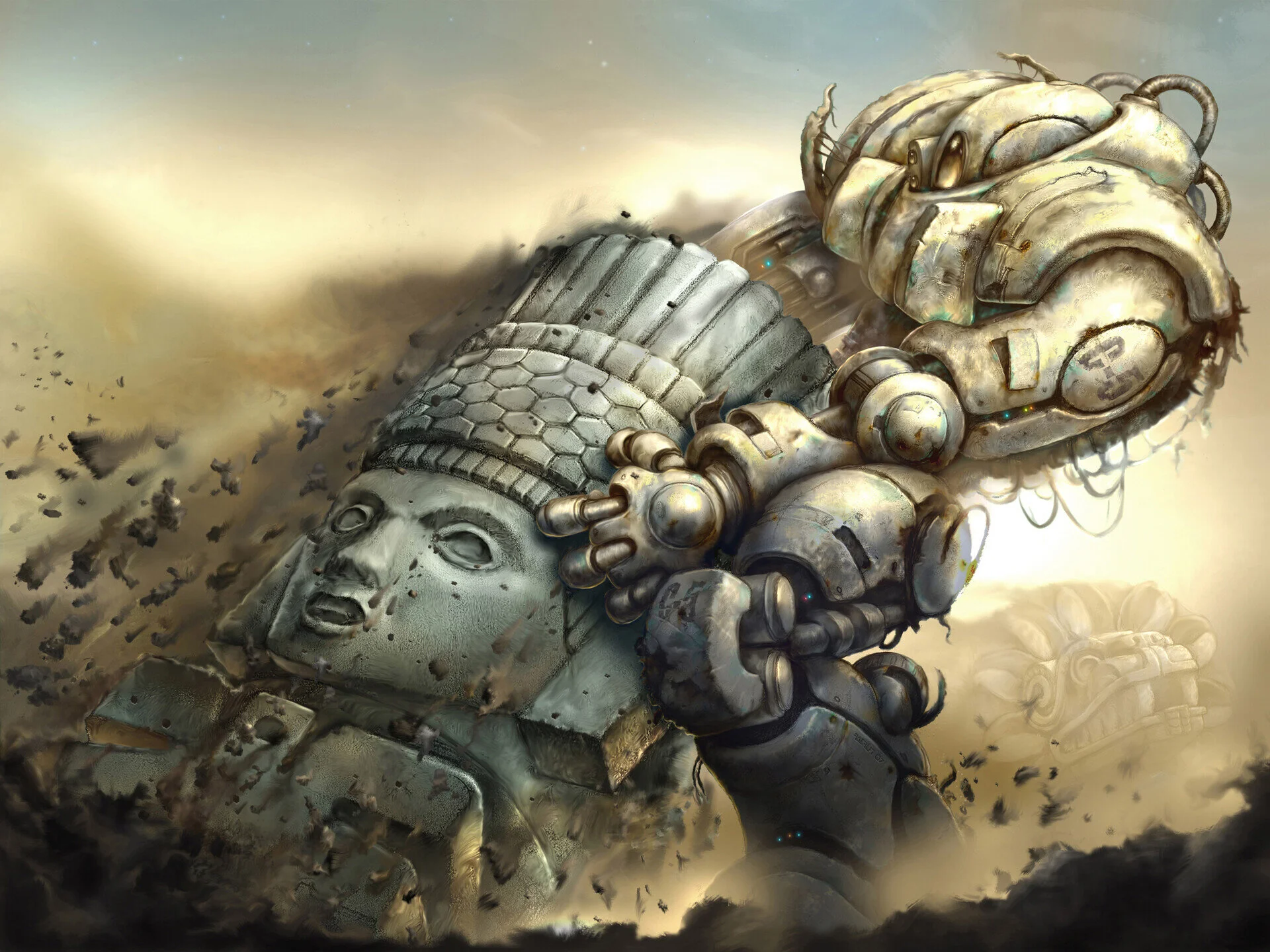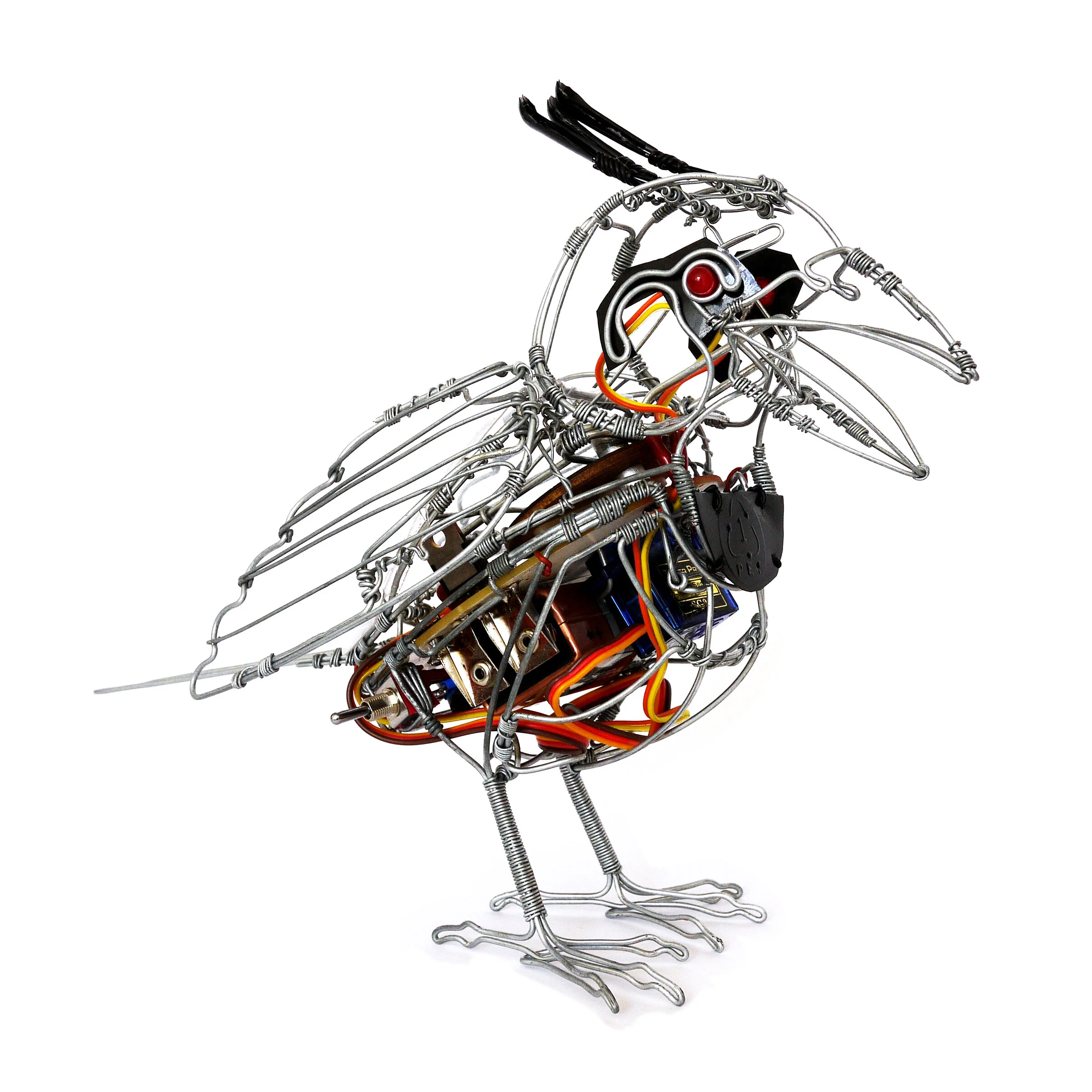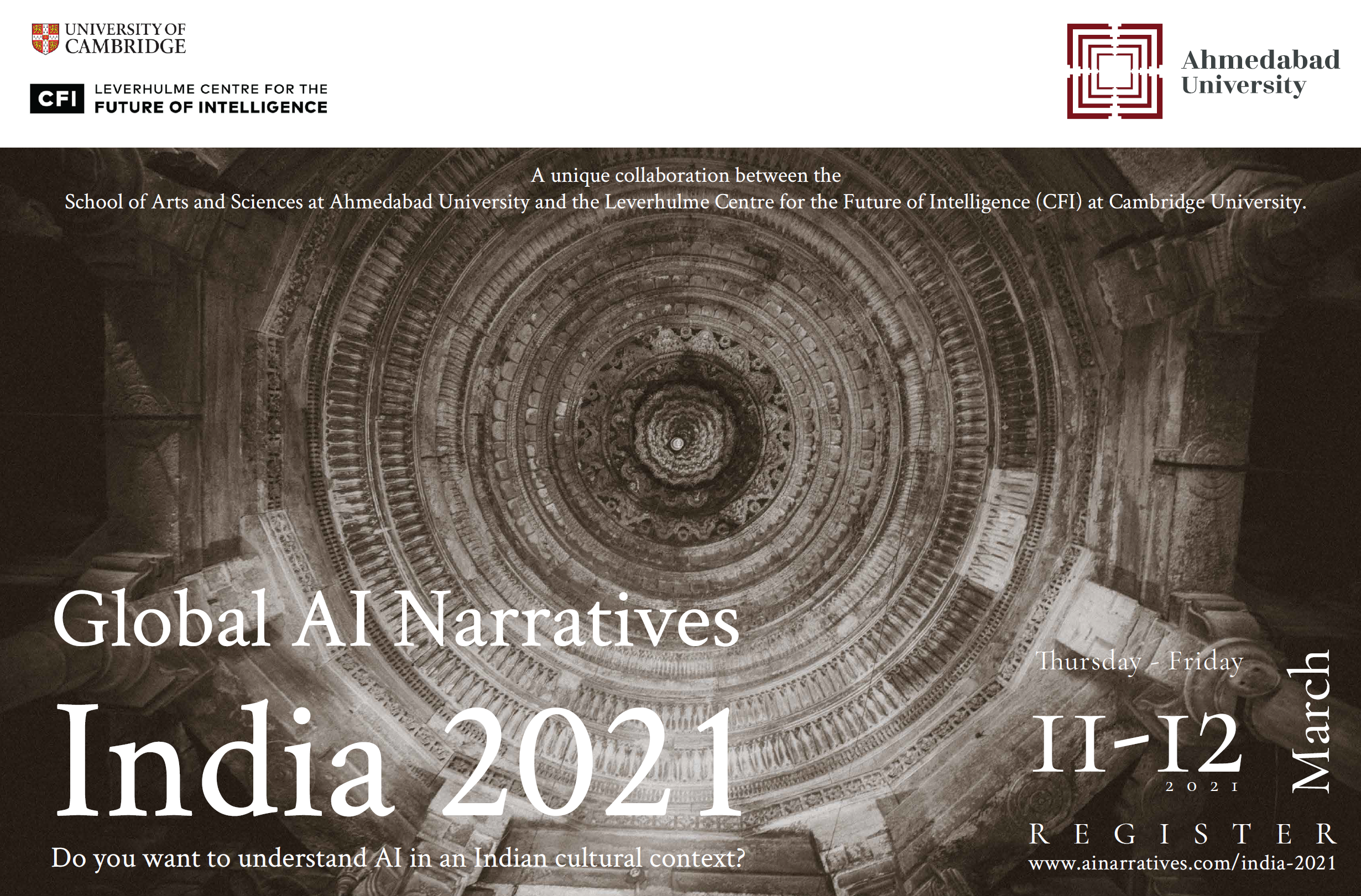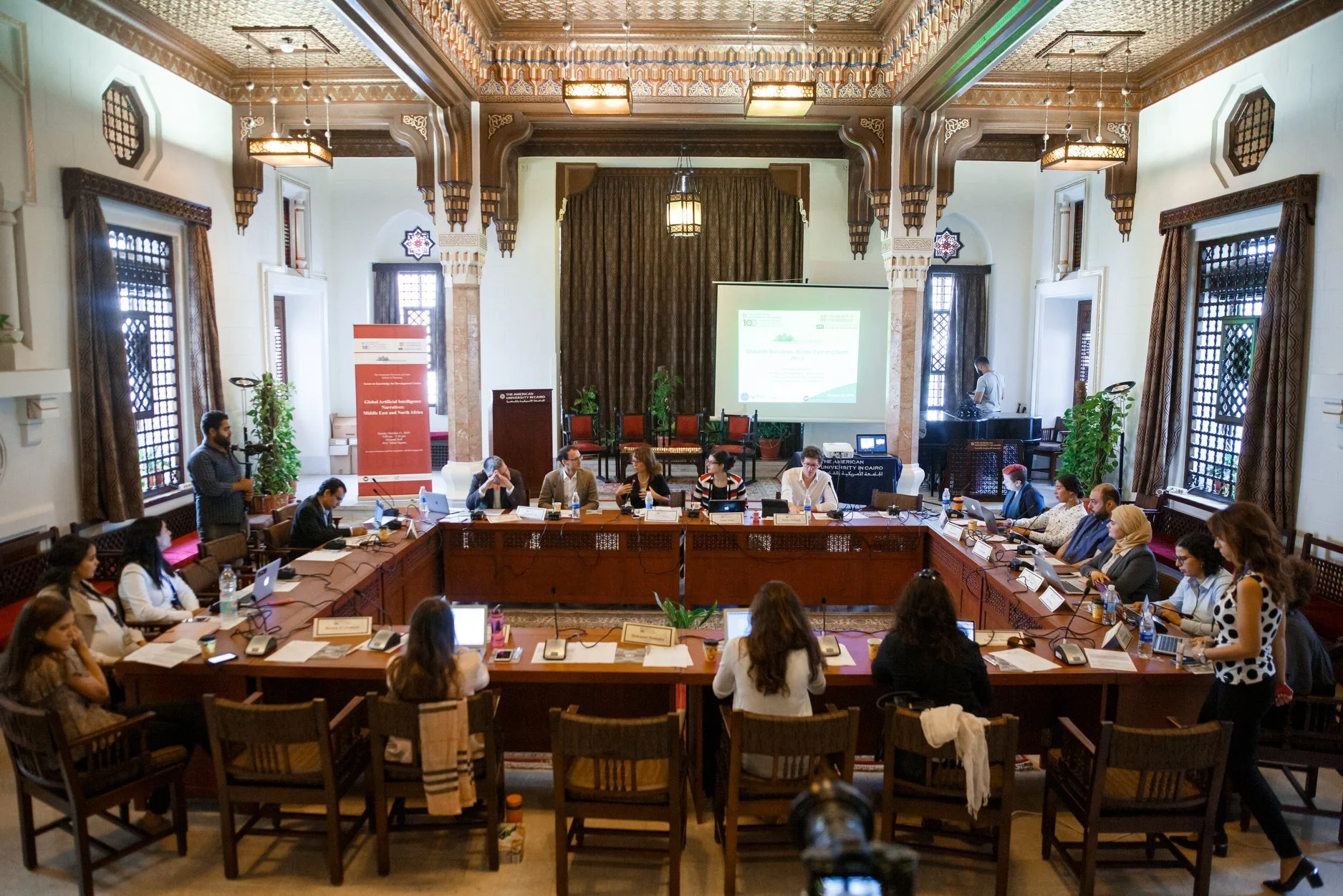A fascinating community of scholars, thinkers, and creators working at the intersections of technology, automation, and futures emerged in Central and Eastern Europe after the Second World War. On the one hand, there were those studying technology as a means of streamlining production and automation in a centralised economy, and enhancing citizen surveillance. On the other, there were the dissenting voices that relied on fictional accounts of technological futures to criticise the authoritarian regimes.
Global AI Narratives: Latin America
In November and December 2020 the Leverhulme Centre for the Future of Intelligence (CFI) at the University of Cambridge joined forces with the Center for Chilean Literature Studies at The Pontificia Universidad Católica de Chile to conduct a series of three workshops devoted to AI Narratives in Latin America. Originally planned as an in-person, two-day event in April 2020 which was postponed due to the COVID-19 pandemic, GAIN Latin America shifted to a virtual format which showcased the work of more than twenty researchers, academics, practitioners and artists working in the field of AI narratives.
Science Forum 2020: Solving global crises requires breaking through barriers
The need to break through the barriers between and within the sciences and social sciences was a central theme at the Science Forum, co-hosted by the Department of Science and Innovation and the Human Sciences Research Council (HSRC). The event itself, a virtual undertaking, brought together thinkers of multiple disciplines, across Africa and internationally.
The role of African narratives in the future of Artificial Intelligence
At a recent virtual workshop on African narratives of AI, digital policy researcher Chenai Chair argued that AI policies need to consider gendered realities and ensure that injustices are not replicated as we race towards a digital world. The workshop, co-hosted by the University of Cambridge and the HSRC as part of the Leverhulme Centre for the Future of Intelligence’s project on Global AI Narratives, brought together thinkers across sub-Saharan Africa to explore modalities and perceptions of AI in Africa today.
Responses to AI and Science Fiction in Hindi, Bengali, and Malayalam Literature
India is a linguistically diverse country, and the literary traditions of different languages often exist independently and in relative isolation from one another. This is especially true of a genre like science fiction, which has not been in the literary mainstream of many languages. Hidden under the citadels of highbrow literature, science fiction in different Indian languages has had the opportunity to develop different trajectories and different forms.
AI Narratives in India
The two-day Global AI Narratives in India workshop covered an array of topics ranging from the representation of AI in Indian science fiction (panel 1) and the diverse linguistic literary traditions in India (panel 4), to the history and philosophy of AI in India (panel 2) and the controversial implementation of the Aadhaar biometric identification program (panel 3). This blog post discusses the highlights of each panel.
Global AI Narratives: China (III) 2021
From Čapek to Lem: AI in Eastern European Science Fiction
2021 marks a double anniversary in Eastern European science fiction. First, it marks the 100-year anniversary of the birth of Stanisław Lem (1921-2006), a Polish science fiction writer and philosopher. Second, the word ‘robot’ was used for the first time exactly a century ago, in the play R.U.R. (Rossum's Universal Robots), which premiered on 25 January 1921. The Global AI Narratives workshop held on 15th January was a celebration of these two centenaries.
Global AI Narratives: China (II) 2021
“An Epoch of Golem-Making”: Artificial Intelligence and the Jewish Imaginary
AI Visions & Narratives: The View from Germany
Global AI Narratives: China (I) 2020
Differences in Eastern versus Western beliefs in celestial beings as integral to informing our modern treatment of AI… In western thought supernatural beings are often dark, scary, or evil (e.g. ghost, spirits, daemons, monsters). They are something to be defeated. By contrast, in Chinese mythology supernatural beings are often positive forces with whom humans can interact and communicate. If treated well by humans, the supernatural being might bestow blessings on a human.
Global AI Narratives: Middle East and North Africa
the GAIN workshop in Cairo aimed to set up a new intellectual space for researchers, artists and technologists working on AI in the Middle East and North Africa, and allow them to not only deliberate over how the vision of technology spreading in the Arab world might differ from that dominating in the West – but also how this vision can shape the development and future use of AI globally.


